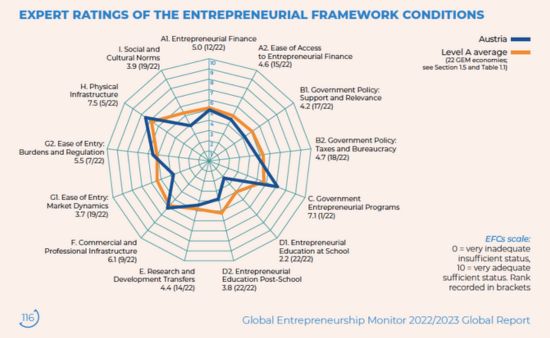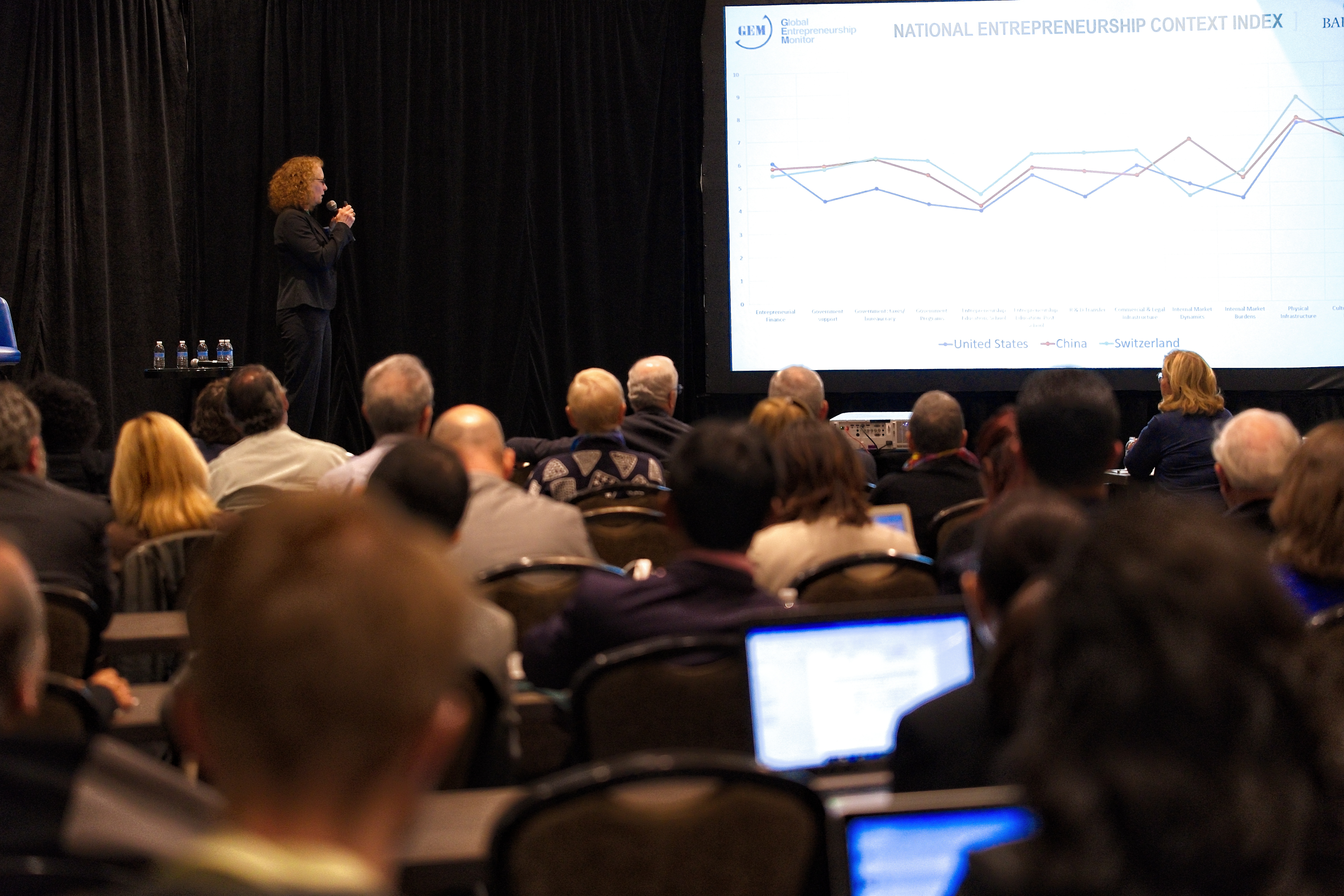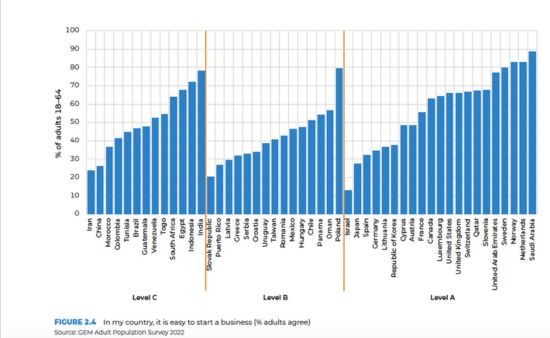Have you ever taken for granted that you were strong in a particular activity, and then had a mirror held up to your weaknesses and inconsistencies in that very area by your peers? Objective assessment by peers can help you to come up with a plan to strengthen and gain momentum.
The same logic holds true for policymakers looking to enhance the entrepreneurial ecosystem in their respective areas of governance. A policymaker might think that a nation, region or city is adequately fostering entrepreneurship and that the existing framework is leading to economic growth for the betterment of all constituents. But often this is just a hunch based on assumptions or weak data that do not accurately tell the story of how a country, region or city is faring in growing entrepreneurship in an optimal way.
Global Entrepreneurship Monitor (GEM) serves as both the source of rich data and a means to benchmark against other economies. Most research on entrepreneurship focuses on business registrations, i.e. numbers of startups. This only tells a select part of the story. Through its Adult Population Survey (APS) and National Experts Survey (NES), GEM is able to gain insight directly from entrepreneurs and experts in entrepreneurship (the only truly global research source to enable this). GEM measures multiple dimensions of entrepreneurship, including entrepreneurial intentions, attitudes and aspirations, to create a complete picture about a given entrepreneurial ecosystem.
GEM research findings enable policymakers to better understand the factors that drive or inhibit entrepreneurship. On a national level, GEM can show policymakers how the strengths and weaknesses of entrepreneurial ecosystems differ compared to some 50 other countries. All GEM teams follow the same rigorous and robust research processes. For example, my colleague Peter Josty recently wrote about how GEM Canada compares to the USA on different data points in this article. Meanwhile, GEM France Team Leader Frank Lasch shared how France performed vis-à-vis other G7 countries during our latest National Reports webinar (here is the recording).
GEM data can be analysed to underscore best practices that support entrepreneurs. While every economy has its own unique nuances, using GEM data as part of benchmarking efforts allows policymakers to identify and devise effective policies and programmes and apply them to their particular context.
GEM has existed for some 24 years. By participating long-term in GEM, National Teams can provide policymakers with GEM data allowing them to monitor the performance of their particular economy across multiple years. They can identify changes in the level of entrepreneurial activity, the types of businesses being started and the motivations and aspirations of entrepreneurs, among other areas. They can also monitor the entrepreneurial response to economic crises and events such as the recent COVID-19 pandemic. Such information not only serves as an input for future decision-making, but assists policymakers with the process of hardwiring their economies during challenging times.
There are various ways in which this international benchmarking is carried out at GEM. First, in GEM Global Reports, breakdowns of Adult Population Surveys enable policymakers to see exactly where their country stands compared to others across hundreds of different data points. Countries are divided across three different categories:
Level A - Countries with GDP per capita of more than $40,000 USD
Level B - Countries with GDP per capita between $20,000-$40,000 USD
Level C - Countries with GDP per capita of less than $20,000 USD
Below is an example of how different economies stacked up on just one of these data points: the ease of starting a business:
Economy profiles in our GEM Global Report showcase how countries are faring compared to peers in the National Experts Survey. As an example, here is just one (of 50) spider graph from the GEM 2022/2023 Global Report; that of Austria:

Participating GEM teams also have access to a plethora of raw data sets that are not made available to the public for three years. There are numerous ways in which countries can use this raw data.
Examples of Using Data to Shape Policy
There are numerous examples of governments using GEM data over the course of our 24-year history. The following links will take you to select examples:
- A source of information on entrepreneurship for stakeholders in Thailand
- Government authorities in Sweden use GEM to understand the entrepreneurial process
- GEM Puerto Rico creates dataset to compare entrepreneurial activity
- Entrepreneurship classes incorporated into regular courses in Korea as result of GEM research
- A source of information used by the Polish Agency for Enterprise Development
- Deputy Minister in Guatemala pens thank you note to GEM
- Slovenia policy documents and entrepreneurship support programs leverage GEM research
- Stimulating the policy debate on entrepreneurship in Brazil
- Ministry of Economics official attends annual launches of GEM research in Chile
Furthermore, because of the credibility of GEM data, other international organizations use our data for their own reports, analyses, or indices. The OECD, the WeFi (Women Entrepreneurs Finance Initiative – part of the World Bank group), the WIPO (for the Global Innovation Index), and the European Commission are all cases in point. Joining GEM has therefore a knock-on effect that goes well beyond GEM itself.
Entrepreneurship is an essential driver of societal health and wealth. It is also a formidable engine of economic growth that promotes the requisite innovation needed not only to exploit new opportunities, promote productivity, and create employment, but to also address some of society’s greatest challenges. Thankfully, policymakers can leverage rich data to create this ideal environment for entrepreneurship.
Aileen Ionescu-Somers is GEM's Executive Director. GEM is always looking to carry out research in new countries and regions, and to revisit those which haven't been studied in several years. If your country is not already represented by a GEM National Team and you believe you can form or fund a team to conduct GEM research, we would like to hear from you. Contact us at info@gemconsortium.org.


